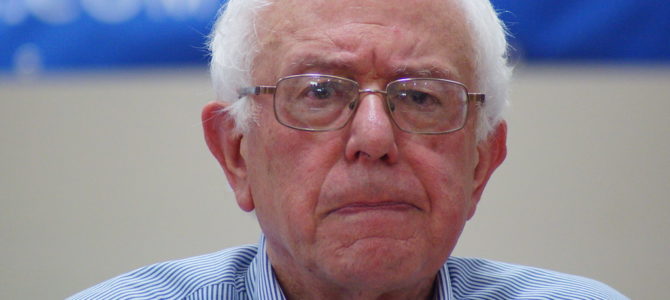Half of the Democratic presidential contenders taking this week’s debate stage support Sen. Bernie Sanders’ ambitious government takeover of health care, a plan dubbed “Medicare for All.” Current polls show that as many as 70 percent of Americans are willing to jump on the Medicare for All bandwagon, so they’re just giving the people what they want.
But polls also show that Americans who are more likely to support the proposal are also less likely to understand it. When the nation faces the prospect of a total health care overhaul, that’s a frightening thought.
Many developed nations are struggling with government-managed health care, but Sanders’ proposal goes further toward a reckless single-payer system than anything ever tried around the world. The astronomical $33 trillion price tag alone, which Bernie has no concrete plan to fund, will be paid for by generations of Americans. Costs aside, the rosy benefits under Bernie’s proposal, in which the government supposedly covers everything from surgery to dental care, would prove costly in more ways than one.
While many developed nations are currently struggling with their single-payer systems, no one has ever attempted a program as far-reaching as Sanders’ Medicare for All proposal, which seeks to abolish all private insurance and replace it with a government-managed system that completely pays for all procedures. According to its proponents, including leading presidential candidates Kamala Harris, Cory Booker, Sanders, and Elizabeth Warren, organizing all insurance under the government would reduce administrative costs. But in reality, we’d simply be throwing gasoline on a fire.
For one thing, the U.S. government doesn’t have a stellar record of efficiency or quality in health-care management. Just look at the Department of Veterans Affairs’ utter neglect of veteran’s healthcare. Even if Sanders could miraculously fix government mismanagement, his idea of eliminating all cost-sharing between the insurer and the health-care consumer has been proven to worsen costs.
Already, the majority of our health-care spending goes toward only 5 percent of the population, most of whom suffer from preventable chronic illnesses. When President Obama eliminated surcharges for pre-existing conditions, people lost their financial reward for living healthily. Unsurprisingly, life expectancies have fallen in the past years (due to preventable conditions), and health-care costs have grown. Today, over half of health-care is spent on 5 percent of the population, largely on preventable chronic conditions.
Bernie and co. are now proposing to take this failed idea to an extreme: eliminating all personal responsibility for health care. Under his plan, consumers could get a medical procedure done, or new glasses, orthotics, or teeth cleanings, all for free, whether or not the procedures are medically necessary.
An extensive economic study by the RAND Corporation proved just as much: without cost-sharing, consumers are likely to drive up the tab by getting more care than they need. In other words, Bernie’s plan would cost even more than $33 trillion. Although, at that point, what’s a few trillion dollars anyway—right?
The alternative Bernie could offer—rationing services—would be equally harmful. Many nations with single-payer have already been forced to ration their care due to the overwhelming burden of paying for everyone. In Canada, more than 1 million people are waiting for some type of procedure. In the United Kingdom, people are unable to receive a life-changing corrective surgery for their blindness.
To strike a balance between draconian rationing and prodigal spending, the United States has, for decades, successfully employed a freer system. When people have to pay for their choices, whether that’s the choice to have an elective operation or the choice to live unhealthily, everyone makes the choice right for them—without imposing the cost of their choice on anyone else. While 71 percent of Americans appreciate their current private insurance, under Bernie’s plan, they’d no longer have that choice.
Now that many top Democratic presidential hopefuls have rallied behind Bernie’s radical proposal, the American voter is left with their own choice: Do we want an expensive and deeply flawed overhaul of a life-saving sector, or should we continue to try and fix our free market system, which has produced the best specialty care in the world?
If the folks on this week’s debate stage get their way, this may be the last health-care decision you ever get to make.









